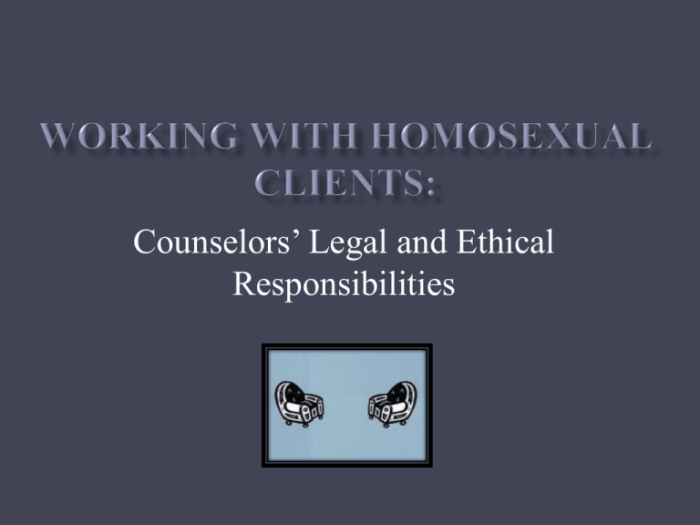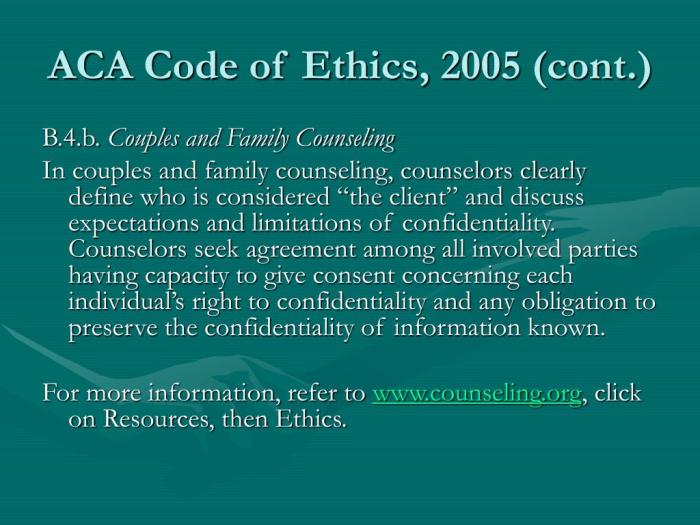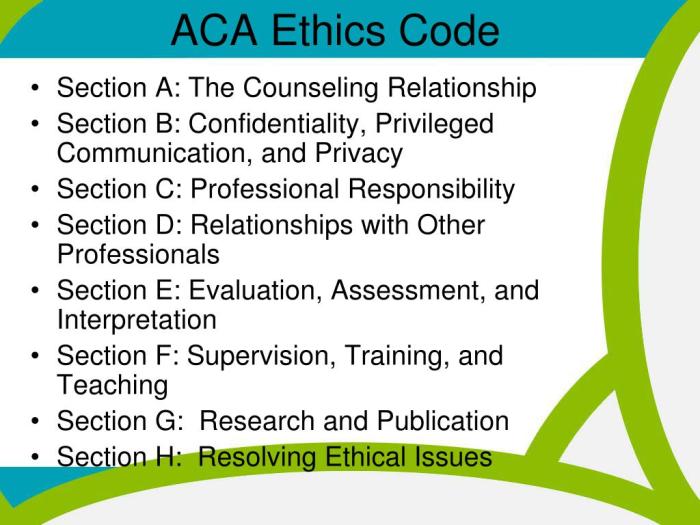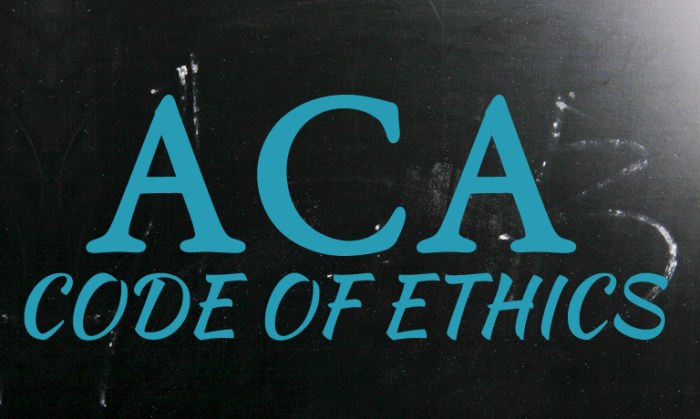Aca code of ethics group counseling – The ACA Code of Ethics for Group Counseling provides a comprehensive framework for ethical conduct in this specialized field. This code establishes the core principles, ethical responsibilities, and ethical issues that group counselors must navigate to ensure the well-being of clients and the integrity of the profession.
Group counseling presents unique ethical challenges, including maintaining confidentiality within a group setting, addressing conflicts between group members, and ensuring that all participants have an opportunity to benefit from the group experience. The ACA Code of Ethics provides guidance on these and other ethical dilemmas, empowering group counselors to make informed decisions and maintain ethical boundaries.
Introduction: Aca Code Of Ethics Group Counseling

The American Counseling Association (ACA) Code of Ethics for Group Counseling provides a framework for ethical decision-making and professional conduct for group counselors. Ethical guidelines are essential in group counseling to ensure the well-being and safety of clients, foster a positive and therapeutic group environment, and maintain the integrity of the profession.
Key Principles of the ACA Code of Ethics for Group Counseling

The ACA Code of Ethics for Group Counseling is based on the following core ethical principles:
- Respect for the dignity and worth of clients
- Beneficence and nonmaleficence
- Justice
- Autonomy
- Confidentiality
- Fidelity and responsibility
- Integrity
These principles guide group counselors in their interactions with clients, colleagues, and the public.
Ethical Responsibilities of Group Counselors
Group counselors have ethical responsibilities towards their clients, colleagues, and the profession:
- Towards clients:
- Provide competent and ethical services
- Maintain confidentiality
- Promote client well-being and growth
- Respect client diversity
- Towards colleagues:
- Cooperate with other professionals
- Maintain professional boundaries
- Avoid conflicts of interest
- Towards the profession:
- Uphold the ethical standards of the profession
- Contribute to the development of the profession
- Advocate for social justice
Ethical Issues in Group Counseling
Group counselors may encounter various ethical issues, including:
- Confidentiality
- Dual relationships
- Client exploitation
- Cultural sensitivity
- Group dynamics
- Ethical decision-making
Group counselors must be prepared to address these issues ethically and professionally.
Ethical Considerations for Group Counseling with Diverse Populations
Group counselors must consider cultural and diversity factors when working with diverse populations:
- LGBTQ+ individuals:Respect gender identity and sexual orientation, address stigma and discrimination
- Individuals with disabilities:Ensure accessibility, provide accommodations, respect autonomy
- Other diverse populations:Consider cultural values, beliefs, and communication styles
Ethical Decision-Making in Group Counseling, Aca code of ethics group counseling
Group counselors use the following steps for ethical decision-making:
- Identify the ethical issue
- Consider the relevant ethical principles
- Consult with colleagues or supervisors
- Weigh the potential benefits and risks
- Make a decision that is in the best interests of the clients
- Document the decision-making process
Ethical Boundaries in Group Counseling
Group counselors must maintain ethical boundaries with clients:
- Avoid dual relationships
- Respect client confidentiality
- Maintain appropriate physical and emotional distance
- Use technology ethically
- Consequences of violating ethical boundaries: Loss of trust, harm to clients, professional sanctions
Ethical Documentation and Record-Keeping in Group Counseling
Group counselors must maintain accurate and ethical documentation:
- Document client intake, progress, and termination
- Maintain confidentiality of client records
- Follow legal and ethical guidelines for record-keeping
- Importance of ethical documentation: Legal protection, client protection, professional accountability
FAQ Compilation
What are the core ethical principles that guide group counselors?
The core ethical principles include beneficence (doing good), non-maleficence (avoiding harm), autonomy (respecting client self-determination), justice (fairness), and fidelity (keeping promises).
What are the ethical responsibilities of group counselors towards clients?
Group counselors have ethical responsibilities to maintain confidentiality, obtain informed consent, respect client diversity, and provide competent services.
How can group counselors address ethical dilemmas?
Group counselors can address ethical dilemmas by consulting with colleagues, seeking supervision, and utilizing ethical decision-making models.

